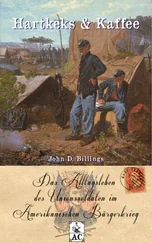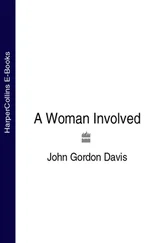Patti Gandhi, head prefect in her final year, leading light in the debating club, victrix ludorum. And, oh, she loved it in England. Not denied buses, tea rooms, cinemas, restaurants, hotels, not told to stand in another queue at the post office or bank or railway station. ‘What a novelty! I was like a kid in a candy store. Just being treated like an ordinary person.’ But, ah yes, an exotic one: there were advantages to being a non-white in lily-white England, standing out in a crowd: the head-turns, the wolf-whistles. ‘I felt like a million bucks for a change, knowing I could date any boy who asked me, dance with anybody, hold his hand legally – kiss him goodnight! And the girls were all super to me, invited me home for weekends, and in the summer we went on coach tours of Europe and to villas by the sea – and the Europeans seemed to go out of their way to be nice to me. And the fact that I’d been to jail for defying apartheid? Oh boy, that made me a heroine in the girls’ eyes.’
It made her a heroine in Mahoney’s eyes too. South Africa had plenty of liberals who said apartheid was cruel, economically unfair, and so on, but who did nothing about it – all talk and no action, as Patti said: but here was a sixteen year-old Indian girl who did , and did her talking in court: it took a hell of a lot of courage to take on the South African system. And when she went on to university she was even more of a hero – and belle of all the balls. God, you’re beautiful , Mahoney thought as he looked at her photograph albums of those days: Patti Gandhi being punted down the river; Patti yelling her head off at the Oxford-Cambridge boat race; Patti in a bikini on the French Riviera; Patti in ski-gear in the Austrian Alps; Patti in her graduation gown.
But when she returned to South Africa, she wasn’t a heroine anymore, she was a criminal. As the sergeant from BOSS, who was waiting for her at the airport, warned her: ‘Don’t think you can come back here with your fancy English ideas, hey, jus’ remember this is a white man’s country, hey, and we’ll be waiting for you before you make any more bleddy trouble, hey!’
‘And what did you say?’
‘Just smiled sweetly and said it was lovely to be home – what else can you say to an oaf like that, his English is too poor.’
‘But why had you come back? You must have been able to get a good job overseas.’
‘To make trouble …’
The first trouble she caused was her announcement that she was entering the Miss South Africa contest. ‘Not because I wanted to flaunt my flesh, but just to cause a furore.’ And cause a furore she did, for by law only white girls could show off their bodies for the Miss South Africa crown. Until the big night when that was decided, however, the law could not stop her hollering her intentions from the rooftops – although a certain Brigadier van Wyk of the South African police, contacted by the Star , warned darkly that ‘if Miss Gandhi insists on making a spectacle of herself the police will not fear to act,’ and a member of the public prosecutor’s staff was moved to ponder aloud to the press about ‘the point at which an act of preparation , which is not an offence, becomes an act of consummation in a case like this – which is an offence.’
The press loved it, and the cartoonists had a field day. Overnight Patti Gandhi became a household name and face, her glamour shots drooled over in every newspaper in the land – and the international press was quick to give South Africa another tongue-lashing. Day after day the press gleefully published different pictures of her, stacking her up against other contestants, doing opinion polls, inviting letters, until an honourable member of parliament, Mr Koos van der Bergh, was moved to demand of the Minister of Police why the government was not ‘putting a stop to this cheeky provocation?’ But Miss Gandhi had not yet broken the law, the Minister of Police explained to honourable members, she would only be guilty of a crime when she physically showed up at the City Hall for the contest – ‘which would be a contravention of the Separate Amenities Act, because the City Hall is for whites only – honourable members need have no fear that Miss Gandhi will be allowed to flout the laws of the land with her ridiculous behaviour.’
‘Why not use the Riotous Assemblies Act?’ the Cape Times ridiculed, ‘which would enable the police to tear-gas and baton-charge Miss Gandhi …’ ‘… and water-cannon to cool down her admirers,’ the Standard in London added gleefully, while the Natal Mercury considered the Terrorism Act more appropriate for such serious cases of creating an ‘explosive’ situation, alternately ‘spreading alarm and despondency’ amongst the other contestant. The Argus was of the opinion that a clear-cut case lay against Miss Gandhi under the Suppression of Communism Act for impudently implying she was as pretty as the next South African.
And then, predictably, came the registered letter from the organizers of the contest regretting to inform Miss Gandhi that they could not accept her entrance application because that would be contrary to the laws of South Africa; but Miss Gandhi did not receive it because she had disappeared. She did not reappear until the big night, when she arrived in a limousine at the stage door of the City Hall, to roars of applause from hundreds of fans and the flash of pressmen’s cameras, ‘looking like a million bucks’ as the Argus put it; ‘absolutely gorgeous’ – the Star ; ‘pure long-legged, busty appeal’ – the Rand Daily Mail ; ‘devastatingly beautiful’ – the Cape Times ; ‘ Wow wow wow ’ was how Drum put it. She swept through them gaily, flashing brilliant smiles and blowing kisses. And the commotion when the police arrested her surpassed Parti’s wildest dreams.
She had expected to be arrested the moment she set foot across the whites-only City Hall stage-door: as the Star put it, the stupidity of the police was ‘crass and complete’ because they wanted to make a ‘show of their kragdadigheid. They wanted all the world to see they would put up with no nonsense from pretty Indian lasses who tweaked apartheid’s nose; but instead they only showed it up for the cruel, tactless, boorish system it is …’ The South African police waited and let the glittering pageant get under way. The show had been going for some time when the doors burst open and into the pageant strode a squad of very serious members of the South African police, and up out of the audience rose a dozen plain-clothes men – ‘twenty beefy South African policemen to arrest one young unarmed Indian girl’ ( Time Magazine).
The commander strode up onto the stage, took over the microphone and announced that the proceedings were in contravention of the Reservation of Separate Amenities Act because there was a non-European on the premises. Policemen were hurrying backstage. Patti Gandhi had been standing with one of the organizers in the wings, fully clothed, watching the proceedings; now, as cops swarmed towards her, she gave a girlish cry and fled, crying ‘ Help! ’ She ducked behind the curtains and then burst onto the stage. She ran across it, dodging lunging policemen, and plunged into the opposite wing. She dodged around the curtains again then burst back again, shrieking ‘ Save me! ’ She made sure that she was arrested centre stage. Cops grabbed her from all sides. The audience was in uproar. And as Patti was led off the stage, gleefully crying ‘ Please don’t hurt me! ’, the punch-up started.
Midst the cheers and applause from the government supporters and the boos and cat-calls of Patti’s supporters, the first fist flew and within moments one corner of the hall was a mass of brawling. It took the police ten minutes to restore order. And the press loved it. As the Star put it: ‘They don’t realize it, of course, in their mindless lust for kragdadigheid , but the authorities played right into Miss Gandhi’s hands and they could not have made greater fools of themselves, could not have exposed their beloved apartheid to greater ridicule and contempt, if they’d sent in the Keystone Cops …’
Читать дальше












